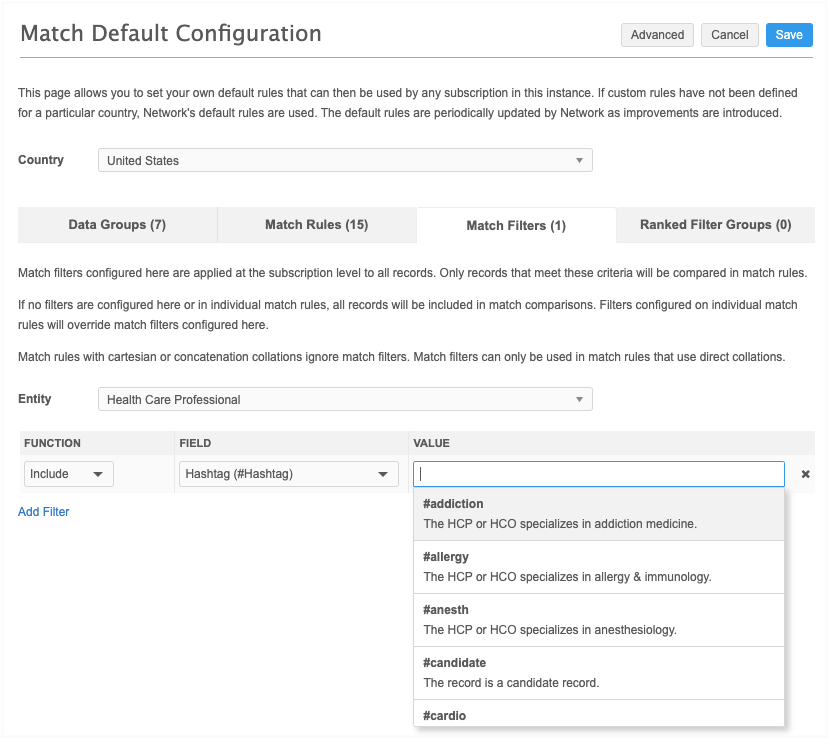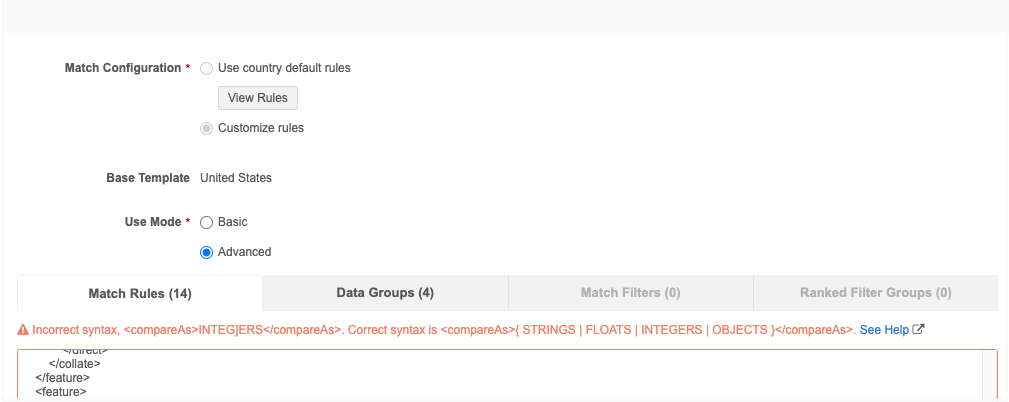Match
Using hashtags in conditional matching
Network hashtags can now be used to filter records considered for matching. For example, use the #hbp hashtag to filter the match rules to consider only HCPs that are business professionals.

This enhancement is enabled by default in your Network instance.
Supported features
Network Hashtags are supported for filtering records in Match Rules, Match Filters and Ranked Filter Groups. They can be applied to match configurations for the following Network features
-
Ad Hoc Match Configuration
-
Add Request Match Configuration
-
Match Default Configuration
-
Data Deduplication
-
Match Rule Collections
-
Source subscriptions
For details about filtering records for match see Conditional matching in the Veeva Network Online Help.
Matching on incoming records
Hashtags can be used in filters and applied to incoming records because hashtags are dynamically calculated; they are not stored on records. Hashtags are associated with incoming records if the records contain the fields and values used in the hashtag configuration.
Using hashtags in conditional matching
In a Match Filter, Ranked Filter Group, or individual match rule for an entity, define the following:
- Function - Choose the records that will be considered for the match.
Include - Only records with the hashtag will be compared to each other.
Exclude - Records with the hashtag will be excluded from the rule.
-
Field - Expand the list and choose Hashtag (#Hashtag).
-
Value - Select one or more hashtags. All enabled hashtags associated with the selected entity display.
If multiple hashtags are selected, records that qualify for at least one of the hashtags will be considered.

Validation errors
Administrators and Data Managers will now see more detailed feedback for issues with advanced match configurations. An error message displays directly above the advanced XML query box to highlight the incorrect syntax.

This enhancement is enabled by default in your Network instance.
Supported match configurations
The enhanced XML validation messages are applied to the following configurations:
-
Match Rule Collections
-
Match Default Configuration
-
Ad Hoc Match Configuration
-
Add Request Match Configuration
-
Match configurations in Source Subscriptions